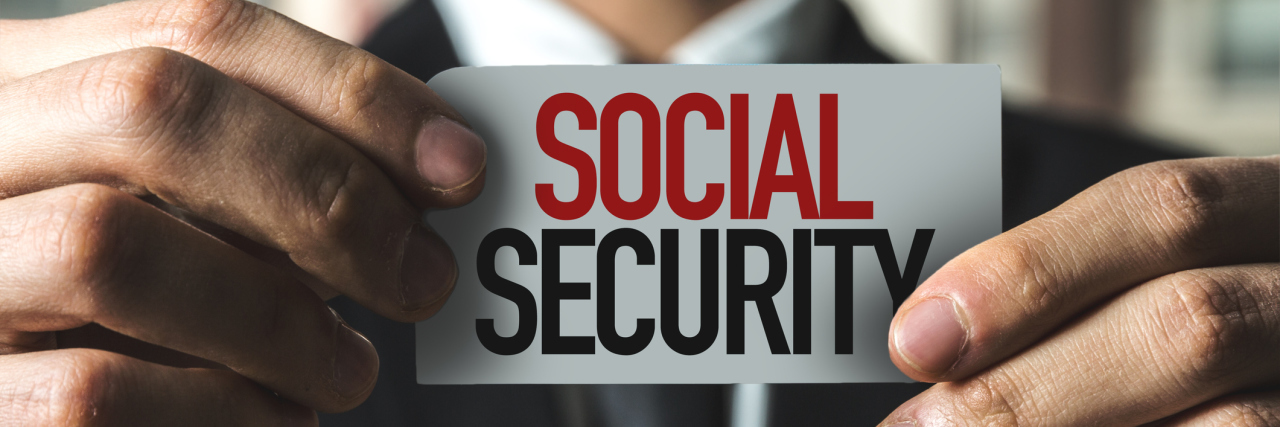How SSI Helped Me Realize My Dream as a Blind Person
Smiling as he took a swig of his drink, my blind friend Phil said, “You’ve got to get off Social Security. You’re going to feel released from your chains.”
Social Security is a monthly check for your food and shelter for people who have disabilities that limit full employment. Phil had been on Social Security for two years and was already solidly employed. I’d been on it for over 10. Did that make me a five times needier blind person? I wasn’t quite sure what the math was, but it was clear he believed he had the calculus for success. In his mind there were the “needy” blind people, who needed Social Security (like myself), and then there were the “successful” blind people. And Phil’s employment made him a shining star of respectability, especially since 60 percent of blind college graduates still can’t find employment.
I’m a newly licensed clinical psychologist and opened a private practice in San Francisco, in search of that liberation Phil described. But I still felt like an impostor because my practice was not yet established. I craved a job like Phil, and his bootstrap-like mentality. From my undergrad to my doctorate, I spent-nine-and-a-half years in the sanctuary of school, largely motivated by avoiding the wild and my inescapable fears of unemployment. I’m finally facing the monster in the wild and I once again feel like I did when I was graduating college, terrified I will never get work and I will barely survive off the crumbs society throws me.
I felt there were two options for employment: a community clinic, or private practice. As a blind person, paperwork is my mortal enemy. This would count against me at a clinic. Even if I were able to convince them of my merits, I feared the paperwork would suck the life out of the profession until it led to my inevitable firing.
But new psychologists usually want more clinical experience before they consider a private practice. It’s intimidating to start your own business, and risky. There’s no money at first and there’s no promise there will be. But I knew that private practice required less paperwork than a clinic. As I began my practice, I stayed on Social Security to cover my basic needs.
As my practice grew, I still feared the day I left Social Security, things would fall apart and I would be without my safety net. I was starting to make money, but still often saw myself as broken, like so many people with disabilities do. Which makes sense — we are often labeled as broken. But the terrifying truth is that anyone could get sick, become disabled, and even die at any moment. People without disabilities try mightily to ignore that they are only “temporarily abled.” And in the good times, “temporarily healthy” and “temporarily not dead.” But as much as we’re marginalized, everyone will join us, either suddenly or eventually.
People without disabilities often deny their fears of their fragile bodies by shoving all of that helplessness and hopelessness onto marginalized people of all kinds. People without disabilities convince themselves of their shiny finish, like a piece of furniture. But this veneer of strength blinds them to their inescapable fragility. People with disabilities are then burdened by a shame we think is ours, but is really society’s fears, and society’s to bear.
When this shame takes over me, I want so badly to be like Phil, and get off SSI. But as I’ve seen my career advancing, something remarkable has happened to my view on SSI. It has shifted from looking at it as a means to keep me alive and define me as no good, to a means of leveling the playing field in an inaccessible world. The government has paid for more of my higher education than my family and I have combined — subsidizing tuition, text books, health care, and assistants for inaccessible material. I doubt I would have made it this far without it. I now realize SSI serves two critical functions in our society: a safety net for people whose disability limits their ability to cover their basic needs, and a support to reach respectable and enriching work.
So many people with disabilities have not been able to excel because of existing inequity. It is not simply the welfare of people with disabilities at stake, but the strength of our nation. People without disabilities can gain the strength that comes from confronting their fears as they have more empathy for people with disabilities. Instead of a beautiful finish that masks an unwanted core, people without disabilities might gain a more substantial composition. But at the cost of the shiny exterior.
I now know I deserved and needed SSI, and I fear that liberation Phil described from getting off SSI was really that shiny exterior. But I get it. At the bar, he truly seemed like a shining star. But nowadays, I have pride for getting SSI and know it has been an essential part of my road to liberation.
I’m discovering I have to stop trying to heal a shame that is society’s and not mine. As I discover which wounds I can heal and which wounds I cannot, I feel like I’m breaking free from my chains.
We want to hear your story. Become a Mighty contributor here.
Thinkstock photo by Ildo Frazao.

